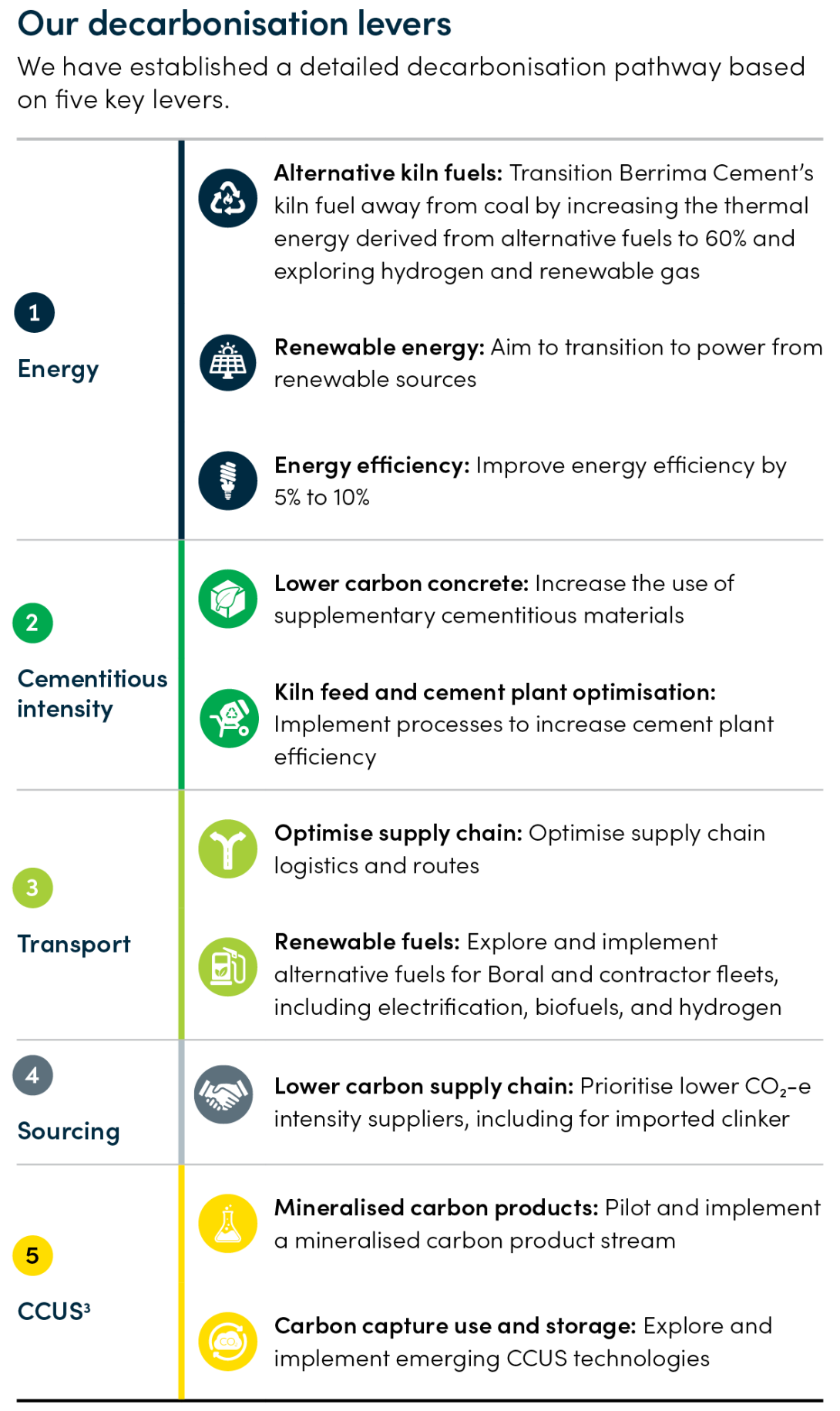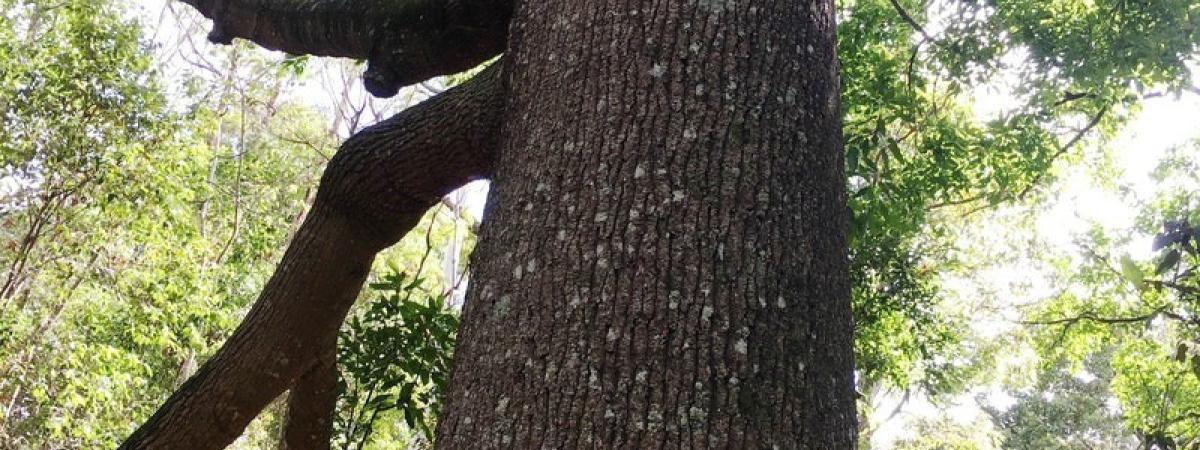Our Commitment
Boral continues to be an industry leader in the construction materials sector with an unwavering commitment to more sustainable practices and decarbonisation.
We were the first global company in our industry to align our FY30 science-based Scope 1 and 2 targets with limiting global warming to 1.5°C, in line with the Science Based Targets initiative (SBTi) and United Nations Framework Convention on Climate Change Race to Zero.
Our aim remains to be a net-zero company by 2050, and we are now working hard to transition from our current FY2030 targets set using SBTi’s Absolute Contraction Approach – acknowledged by SBTi as a one-size-fits-all target-setting method – to new intensity targets aligned with viable decarbonisation pathways for the cement and concrete industry.
The newly released SBTi Sectoral Decarbonisation Approach for the cement industry recognises that “due to its process (geogenic) emissions from limestone calcination in clinker production, the rate at which the sector can decarbonise may differ from the overall rate of decarbonisation possible by society as a whole”. [Source: Science Based Targets initiative (SBTI), Cement Science Based Target Setting Guidance, September 2022].
We have also updated our intermediate FY25 targets, which remain ambitious but achievable.
Our key milestones
FY25 Targets: Boral is on track to achieve a 12% to 14% reduction in our absolute Scope 1 and 2 carbon emissions by FY25, based on FY19 levels.
- Carbon Border Adjusted Mechanism (CBAM): Boral urges the implementation of a CBAM, warning that failure to do so could result in shifting carbon emissions to other nations, with no competitive benefits for Australia.
- More Sustainable Innovations: Exploring recarbonation of concrete - the process whereby concrete absorbs carbon dioxide through its lifecycle.
Continue with our thriving Recycling and Circular Economy solutions. In FY23 over 2 million tonnes of construction and demolition waste was recycled for re-use or repurpose.
- Lower Carbon Concrete: Our more sustainable concrete offering continues to grow and is increasingly sought after by customers.
- Regulatory Alignment: With the newly commenced Safeguard Mechanism reforms as of July 1, 2023, we are diligently realigning our strategies to meet the new baseline decline rate requirements at our Berrima Cement plant in New South Wales.

We are assessing and realigning our FY30 targets to reflect an achievable decarbonisation rate with current available pathways while considering our new obligations under the Safeguard Mechanism reforms.
Our starting point: FY19 baseline CO2 emissions

Business Ambition for 1.5°C
is a global initiative calling for action on climate from a global coalition of UN agencies, business and industry leaders, in partnership with the Race to Zero.
Science Based Targets initiative (SBTi)
SBTi provides the benchmark for setting science-based targets to reduce greenhouse gas emissions. These are targets that are in line with what the latest climate science deems necessary to meet the goals of the Paris Agreement.
Scope 1 emissions
Direct emissions such as from the use of fuels in manufacturing, process emissions from calcination in cement manufacturing, and transport of raw materials.
Scope 2 emissions
Indirect emissions from purchased electricity.
Scope 3 emissions
Indirect emissions from our broader supply chain, such as from the goods and services we purchase and the transport of materials to our operations and to our customers not using our own vehicles.

